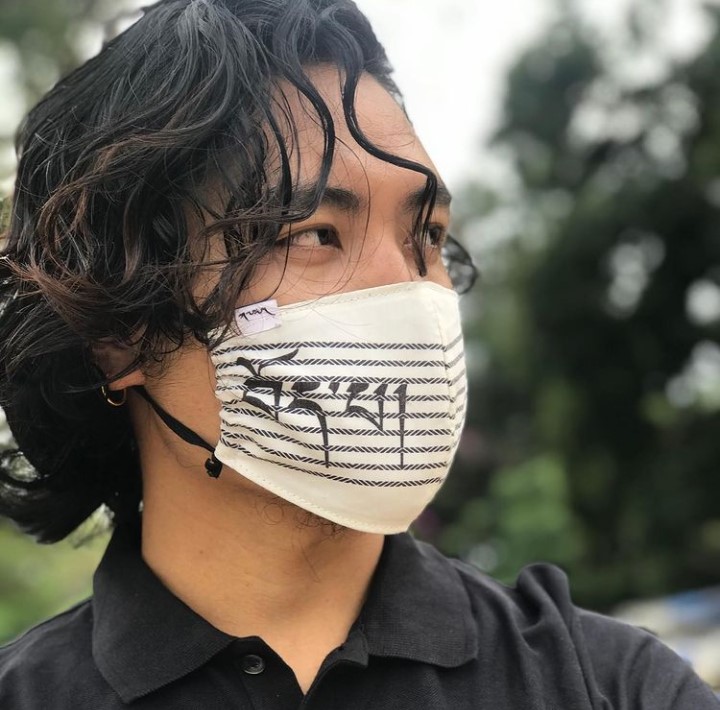“Be the reason someone smiles. Be the reason someone feels loved and believes in the goodness in people.”
Roy T. Bennett, The Light in the Heart
“We were pleased to have some candid session with Mr. Kunchok who is widely known in the social media world as “Ted Kunchok”. In an attempt from our side to know more about him for all his philanthropic activities for the welfare of Tibetan as well as Indian people thereby strongly becoming an emerging role model among the younger generations, we requested him for an interview session which was very productive and meaningful. Here it goes:
Q: Hello Ted Kunchok la. Firstly, thank you for agreeing to do this interview. To start with, can you please share a brief introduction about yourself: about you, your role models, and life?

Ted: My name is Tenzin Kunchok and I was born in Delhi. I studied in Upper TCV (Tibetan children’s village) school until grade 12th. And since then, I have been undertaking winter business as my job. As with all Tibetans, my first role model is our one and only His holiness the 14th Dalai lama. Another role model whom I greatly look up to is my grandmother who raised me in place of my parents since childhood.
Q: What is your intention behind starting your kindness journey through a media platform?
Ted: In general, as a person, I like helping others. But, speaking about my intention behind sharing my work through media specifically YouTube, it actually stemmed from my personal inclination and interest in watching videos showing the documented initiatives of ‘animal rescue’ and ‘helping homeless people’ by others. Particularly in the past when I battled with drug addiction, anxiety and depression, I resonated and felt happy and motivated after watching such videos. Those feelings made me think that, by sharing the initiatives and help I provide to others through videos, this might in fact relay the same good feelings and motivations for others to also do the same.
Q: How can the involvement of ‘media’ as a platform be helpful in our journey to spread kindness within our community?
Ted: With media, given that the reach of any content/work to others is very quick and easy, I consider it as a good and helpful platform to be able to motivate and inspire others through my videos. I often see people commenting on my channel sharing their experience of helping others after having watched my videos, which eventually fulfills the purpose of me documenting and sharing my works to others.
Q: What are your thoughts about the education of a child in relation to practicing kindness?
Ted: For children, in addition to the formal education that they receive, I do believe that it is very important to incorporate teachings of basic ethical values, principles, and education in understanding mindfulness, kindness, compassion, and tolerance. Given that, practicing those core values is closely intertwined with basic human values or common sense; facilitating teachings on those values and principles can therefore be done by relying on the reasoning of cause and effect and our own intelligence, even without incorporating religion. So, I think, such learnings will be extremely helpful for the younger generation to later assimilate and practice being kind, compassionate, and mindful.
Q: Do you think, some people are more compassionate than others?
Ted: I think, that all humans are equally capable of being kind and compassionate to others. However, scientists had reported the presence of each individual’s innate or intrinsic personality that they were born with and hence that might later affect how they approach the decisions and choices they make in their lives. This might then suggest that each person’s ability to be kind is also variable based on their intrinsic personality.
On the other hand, in Buddhism, it is regarded that a person’s disposition towards different emotions can be changed by engaging in meditation for example. So, I believe that whilst every one of us shares the same ability to be kind and compassionate, in some, it might not have been recognized as being present in them due to those values being masked by afflictive emotions. This can be relative based on their personal experiences. But I do think the fundamental ability in being kind and compassionate is equally present in all of us.
Q: With your initiatives in helping others, how do you nurture or develop compassion to alleviate the sufferings or concerns of the people?
Ted: Most people want to be more compassionate, thoughtful, and kind to others. But I think before that we need to start by being kinder to ourselves. Self-compassion is not self-pity by the way. The more compassionate thing we can do for ourselves the more we can feel others’ pain and help them. In today’s time especially younger generations we suffer from low self-esteem. We always feel inadequate. Driven by thoughts and emotions without being mindful. We harm ourselves. How can we be kind to others then? So I think first we need to be kind to ourselves.
When I say be kind to yourself I do not mean giving a treat for yourself. Buying new clothes, going for fancy dinner. No, but what I mean is that we need to listen to our inner voice and try to be aware of any negative, self-critical thoughts and self-talk… Recognizing this will create a gap and we can see that these are just thoughts and interpretations.
And then we can explore and re-frame negative judgments with more compassionate ones.
Q: Can you share with us, what have you learned from caring and helping others?

Ted: From my personal experience of helping others, it was indeed apparent that the sense of ‘self-centered thinking’ greatly reduced in me. By thinking and caring about other’s hardship and suffering, I would often think of my problems as being relatively small and hence realize the need to practice a sense of ‘belonging’ wherein self-cultivation actually includes caring about other’s suffering which in retrospect, eases our own worries and agitations. This then enables us to help others more.
Q: What advice would you like to give for the younger generation who are willing to contribute towards practicing kindness within their society?
Ted: Although, I might not be at a stage to give advice. What I would like to share is:
Firstly, in our society, with any work that we do, there will be opinions, both good and bad. But, if you are true and unashamed about the decisions and choices you make, I find it important for people to not give up with their work, by not being wary of other’s opinions.
Secondly, when helping others, I think it is important to nurture the fundamental thoughts of appreciating others as being ‘equal’ human beings with the ‘same basic needs’ and not classify them / render any bias based on their religion, nationality, sector, or castes. That way, we can help others with no prejudice and partiality.
Thirdly, in lending support and help to others, I believe that your intention needs to be genuinely driven towards alleviating others’ problems and not harbor an underlying objective to gain benefit for yourself or to you.
Q. Thank you Ted Kunchok for your time and kind gestures.
Ted: Thank you.
Our message
To know more about his activities, follow these social media links for more information.
Related Articles
